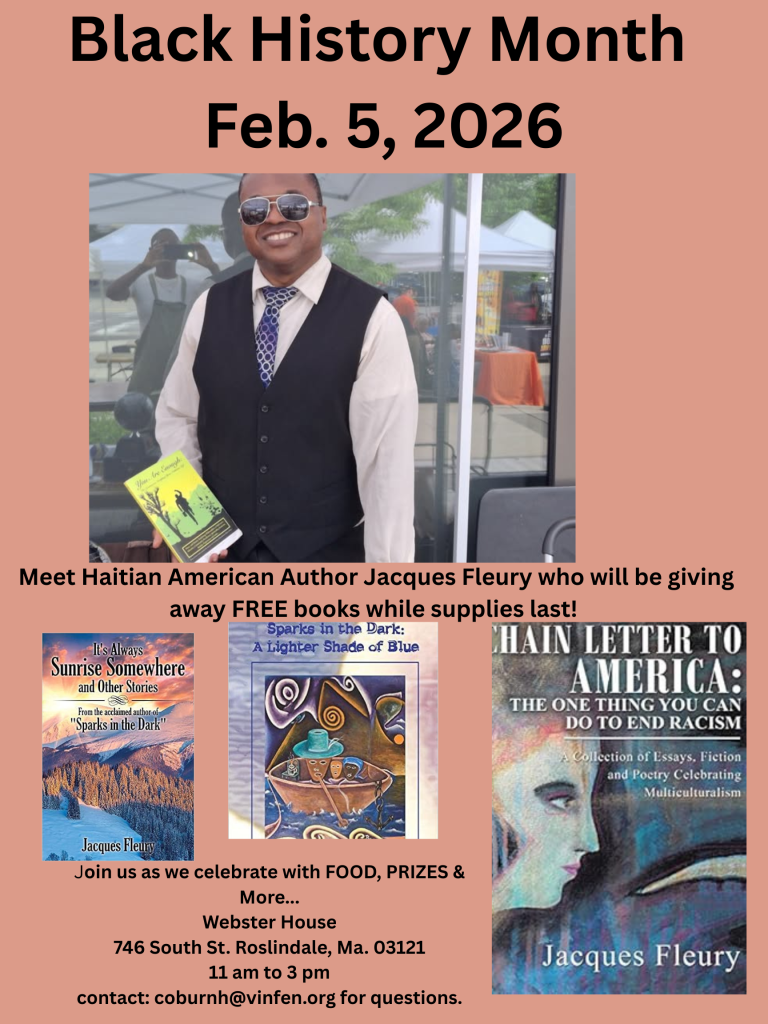
Author Archives: Synchronized Chaos
Synchronized Chaos’ First February Issue: Paying Attention
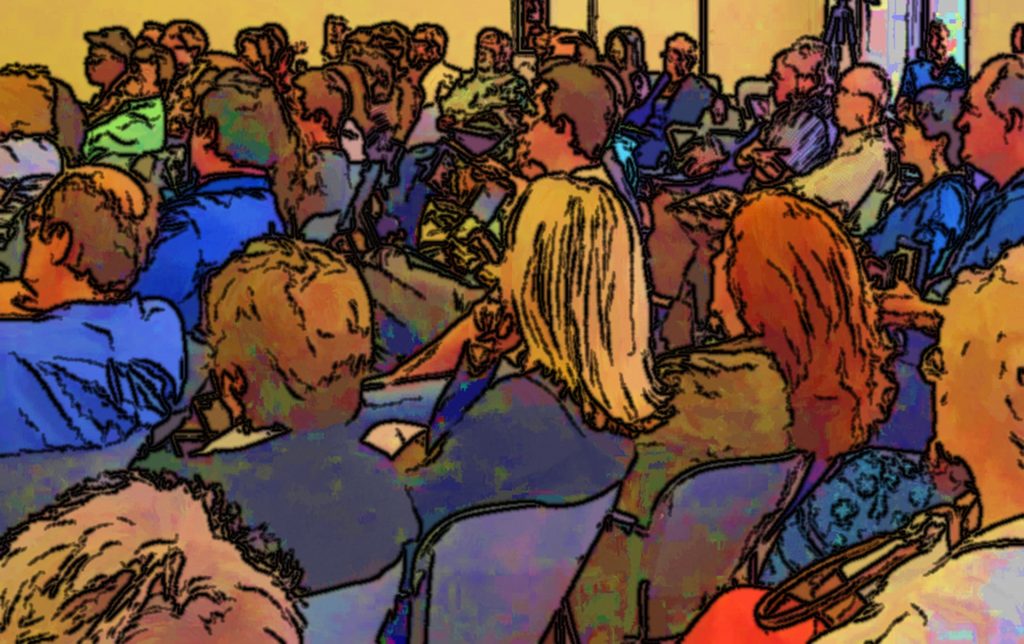
First of all, published poet and contributor Tao Yucheng is still hosting a poetry contest, open to all readers of Synchronized Chaos Magazine.
Synchronized Chaos Poetry Contest: We seek short, powerful, imaginative, and strange poetry. While we welcome all forms of free verse and subject matter, we prefer concise work that makes an impact.
Guidelines: Submit up to five poems per person to taoyucheng921129@proton.me. Each poem should not exceed one page (ideally half a page or less). All styles and themes welcome. Deadline for submissions will be in early March.
Prizes: First Place: $50 Second Place: $10, payable via online transfer. One Honorable Mention. Selected finalists will be published in Synchronized Chaos Magazine.
Next, poet Yucheng Tao’s new chapbook, The Mirror Image of Death, has just been released from Alien Buddha Press! People can order it here.

J.J. Campbell’s new book To Live Your Dreams is also out and available to order here.
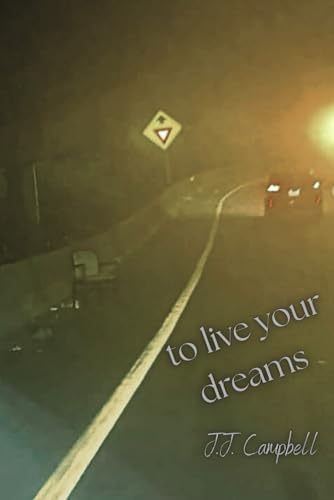
Welcome to this month’s issue, Paying Attention.
Across poetry, fiction, essays, memoir, and scholarship, this issue asks what it means to live attentively: to create honestly, remember faithfully, love fully, and choose responsibility in an impermanent world.
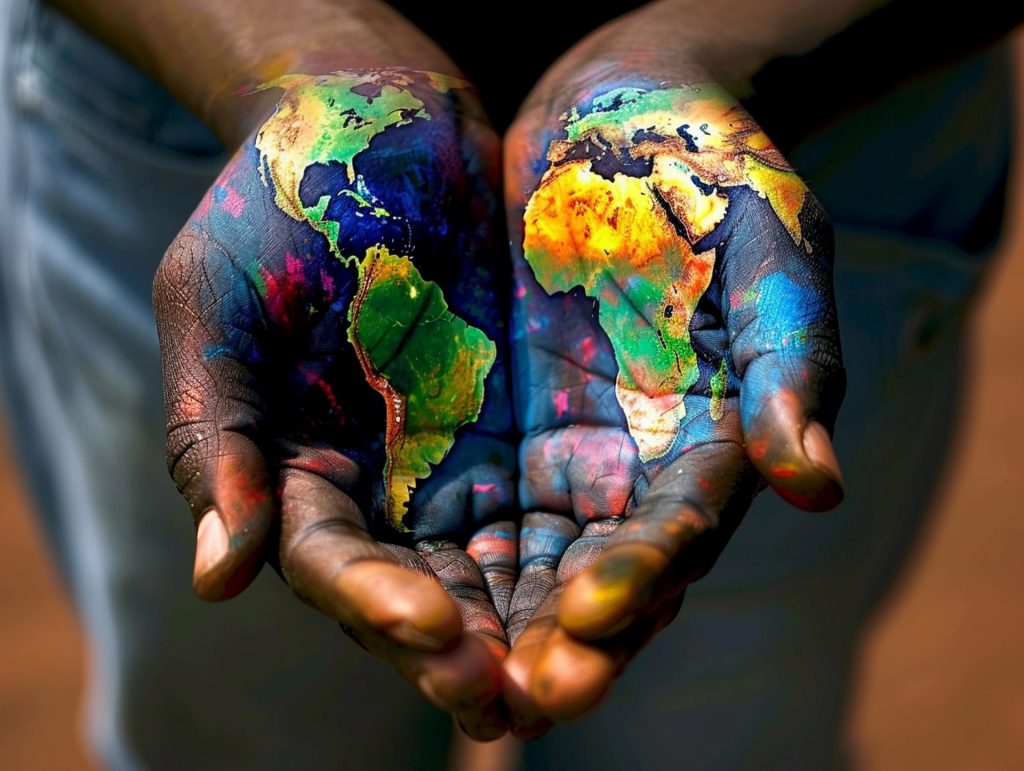
Jacques Fleury honors the many contributions of Black Americans to society and argues that the United States still needs to celebrate Black History Month due to their lack of knowledge of essential history and context.
Sayani Mukherjee presents spring as both gentle and haunting, reminding us that loss and regrowth are both intimate parts of our experience. Berdirahmonova Shahlo Sherzod qizi expresses poignant longing for the return of joy and love in the spring. O’giloy Kucharova celebrates the social and natural renewal of spring as Christina Chin’s haikus evoke winter’s precarity and solitude. Brian Barbeito’s work dissolves boundaries and outlines in the dark of night and the way the rain falls everywhere, inspiring an open, receptive state of mind. His next piece evokes a chilly and aesthetically under-defined winter day.
Ma Yongbo’s wintry and tough-minded poetic cycle poses the question of what it means to keep creating when permanence and perfection may be impossible. Lan Xin’s pieces honor restraint, the diversity of life, and working with the natural rhythm of life’s seasons. Mykyta Ryzhykh calls attention to how both death and rebirth in nature bring us out of our ponderings and back to the present moment. Sterling Warner draws upon fresh and salt water and psychological and physical weather Linette Rabsatt’s poems take joy in letting go of the conscious mind and listening to the natural world as a source of inspiration. Joseph Ogbonna meditates on the stillness and inspiration of an early dawn. Gezim Basha, in work translated by Marjeta Rrapaj, celebrates tender love and living an authentic life. Yo’ldosheva Zinnura writes of the need to care for and consider our impact on the environment and climate.
Mehreen Ahmed’s work explores art, creativity, complicity, and displacement. Alan Catlin’s ekphrastic poetry crafts scenes of still life interrupted by violence and chaos. Bill Tope’s short story critiques immigration enforcement violence in the United States through the terror of one wrongly targeted victim. Kelly Moyer’s absurdist, provocative video speaks to the same topic as Leticia Garcia Bradford offers a local perspective and Pat Doyne brings strident satire to the issues of the day. Umid Najjari offers a poetic tribute to those who lost their lives in the Iranian revolution. Sungrue Han’s poems evoke alienation, dislocation, and collective and individual trauma. Mahbub Alam decries human greed and the destruction of other humans and the natural world and encourages care and respect. Virginia Aronson draws attention to modern crimes committed by government agents and by international criminal gangs, suggesting a comparison.
J.J. Campbell brings his signature blend of hard-earned cynicism and exhaustion. Scott C. Holstad snatches bits of sweetness and color from complex and artificial modern life. Türkan Ergör reminds us of our mortality and vulnerability to various human struggles. Like a wanderer tiptoeing through dimly lit rooms in a house, Carl Scharwath’s poetry moves from loss to relief to conscious acceptance of stillness. Allison Grayhurst’s poetic cycle sheds, releases, and re-forms visceral emotions. Dr. Prasanna Kumar Dalai’s work carries the quiet dignity of someone who feels deeply but speaks carefully.

Mesfakus Salahin’s work addresses the alchemical transformation of formless feeling into legible thought through poetry. Shakespeare Okuni’s poem highlights the role of ritual and performance in meaning-making. Alex Johnson sets out a manifesto for artistic openness and an aesthetic that welcomes diverse sources of inspiration. Stephen Jarrell Williams evokes life, innocence, joy, and energy in his restrained pieces. Rus Khomutoff’s piece is at once overabundant, technical, and tender, perhaps more intended to be entered into than understood.
Abbas Yusuf Alhassan’s ars poetica explores the various forms poetry takes in his mind and how inspiration hits him as an artist. Duane Vorhees probes desire, time, chance, and memory. Nurbek Norchayev meditates on nature, time, and the life of the soul. Michael Robinson’s essay is a lived testimony of fear, darkness, illness, strength, forgiveness, and survival. Maja Milojkovic speaks of her personal spirituality and closeness to God. Sarah Adeyemo also reaches for her faith for comfort and the strength to keep loving even through a time of desperation and grief. Patrick Sweeney’s one or two-line thoughts provoke head-scratching and evade easy answers. Texas Fontanella jumbles a variety of words and symbols into a static buzz. Grzegorz Wroblewski’s asemic pieces reflect a mind in motion, jumping and self-editing mid-thought from one idea to another.
Susie Gharib navigates the emotional landscape of power, voice, myth, and lived reality. Mark Young contributes a fresh set of altered technicolor Australian landscapes. Cristina Deptula observes and comments on Dianne Reeves Angel’s memoir of a creative life in film production, Every Restaurant Tells a Story. Federico Wardal celebrates the film legacy of Italian filmmaker Billy Wilder. Taylor Dibbert enjoys traveling despite occasional moments of personal embarrassment. Xo’jyozova Dildora looks to ecotourism as a way to sustainably strengthen local economies.
For travel in a more metaphorical sense, Abdugafforova Muslimaxon Akmalovna reviews Qobilon Shermatov’s fantastical children’s tale The Country Inside My Grandfather’s Stomach. This book addresses issues of personal character, as each person’s “interior” reflects who they are and how they behave.
Other authors look at individual and collective character and moral choice. Eva Petropoulou Lianou’s poems express her hopes for peace, understanding, compassion, and humanity. Gordana Saric echoes that hope, wishing for worldwide love, understanding, and reconciliation. Maftuna Sultonova reminds us of the infinite value and dignity of each person. Nigora Baxtiyorova analyzes infidelity as a theme in Uzbek literature. Xasanova Aziza Kumushbek qizi peers into even more Uzbek literature and finds a timeless warning about how one’s life and dignity matter even more than one’s reputation and fame. Journalist Elisa Mascia interviews Azerbaijani author Jakhongir Nomozov and he affirms the need for authors to master their craft and speak their truth regardless of passing fads or popularity. Solid work will stand the test of time.
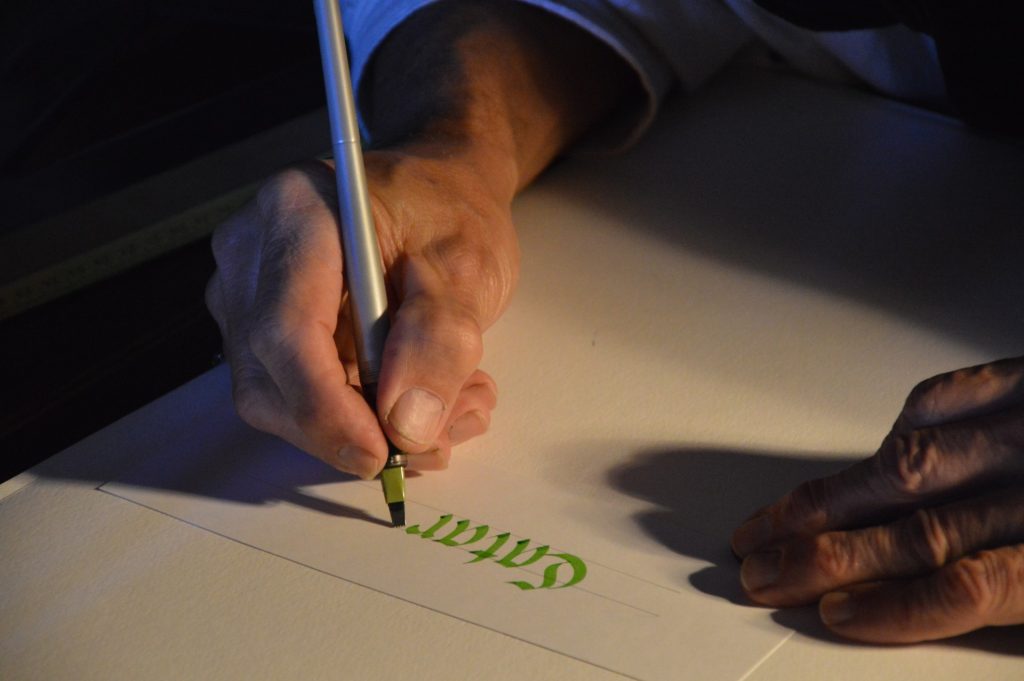
Dr. Jernail S. Anand suggests that a complete education not only teaches technical skills but also how to be a decent human being. Kodirova Shakhzoda highlights the cultural importance of Uzbekistan’s cultural values of compassion, courtesy, respect for nature, and courage.
Dr. Barbaros İrdelmen mourns love lost to human and societal pettiness, and to death. Bill Tope and Doug Hawley co-present a tale of loss, guilt, and redemption. Mehrinoz Tursunova’s bittersweet love poem prepares for an impending separation. Eshmatova Marjona Kamol qizi outlines ways social service systems can intervene to support children from dysfunctional families. Nurboboyeva Dilshoda Nodir qizi evaluates the psychological effects of divorce on children and suggests ways to help them through the transition.
Dildoraxon Turg’unboyeva reflects on childhood memories and her love for her departed grandfather. Gulsevar Mirzamahmudova honors her hardworking migrant laborer father for his care and determination, reflecting on how she misses him.
Malohat Ahmadjonova expresses love and gratitude for the hard work and dedication of her parents, who made sure she dressed well and received an education. Mashrabxo’jayeva Feruzakhon offers gratitude for the steady love and care of her parents. Nurullayeva Nigora Nurmurod qizi’s poem expresses her love and care for her mother, who has given her so much. Ismoilova Sarvinoz reflects on how much her parents have loved her over time and how she wishes to return the favor as they age. Shafkat Aziz Hajam fondly remembers the freedom and wonder of childhood, made possible by his caring parents.
Islamova Dilnoza Khamidovna gives thanks for a caring and steady friend as Rukhshona Khamzayeva shares her gratitude for a dedicated teacher. Zarifaxon Holiboyeva reflects on missing her family and her classmates in a young student’s piece full of tender affection. Toshpulatova Mehribonu Sherbek qizi rejoices in the love of her sweet sister. Alisherova Hurmatoy reflects on the power of her lover’s kind words to calm her spirit. Graciela Noemi Villaverde draws on elegant nature-inspired imagery to express her love. Chinese academic Bai Gengsheng pays tribute to his loyal and hardworking wife, acknowledging that her steady support over many years made his accomplishments possible.

Aziza Xasanova compares waiting for the unfolding of love to allowing a fig tree to leaf out in its season. Lan Xin’s epic, mytho-romantic piece affirms the choice of embodied and temporal love over transcendence and divinity.
Ozodbek Narzullayev’s verse expresses adoration for his country as if it were his lover. Jahongirova Gulhayo Jahongirovna’s rhyming poem pays tribute to a man of deep loyalty, patriotism and integrity. Abduganiyev Shexrozbek discusses the inter-related nature of the Uzbek national concept, legal system, and spiritual values in shaping the culture.
Kudratova Nozima Bahromovna explores the narrative style of Uzbek writer To’gay Murod. Madina Jorayeva’s essay highlights the contributions of translator and critic Ozod Sharafiddinov to Uzbek and world heritage and literature. Shahnoza Ochildiyeva translates Ozod Sharafiddinov’s essay celebrating and analyzing the literary value of poet and translator Abdulhamid Sulaymon og‘li Cho‘lpon’s contributions to Uzbek literature. Nargiza Masharipova celebrates the cultural interchanges made possible by the migration of the world’s peoples. Sultonaliyeva Go’zaloy outlines some of the factors encouraging and driving migration. Ubaydullayeva Saodat celebrates the literary artistry and truth-telling of one of Uzbekistan’s greatest poets, Alexander Feinberg. Xayrullayeva Zahro suggests ways to preserve the high literary quality of the Uzbek language and not lose it to abbreviations and modernisms. Rizoqulova Parvina Ramzovna analyzes the relation between language and culture.
Munavvar Tlewbaeva speaks of the comfort she finds by reading books by authors who understand and write of her feelings. Odinaxon Qodirova highlights ways to encourage young people to read. Yusupboyeva Madina rejoices in the persistence of reading culture among young people. Turgunova Kh. suggests strategies for teachers to effectively communicate with young Generation Z students.
Karimova Navbaxar Mahmudjanovna suggests strategies for encouraging creative thinking in children. Jorabek Muhammadolimov raises awareness of how too much scrolling and flipping online can lead to difficulty concentrating. Choriyeva Oynur warns of the consequences of overuse of smartphones and the Internet. Roziboyeva Asilakhon speaks against digital surveillance and fear-driven self-censorship.

Isroilova Sarvinoz Maxmud qizi discusses how to use educational tools to teach young children mathematical concepts. Barnoxon Baxtiyorjon Yoqubova considers strategies for integrating physical play with learning arithmetic. Amirqulova Gulsevar discusses digital innovations in education. Daminova Sevinch Tuychi qizi highlights the enlightened wisdom and teaching of Uzbek children’s educator Abdulla Avloni. Lazokat Ortigaliyevna Pirmatova relates how participating in competitive mental arithmetic helped her to develop confidence and the ability to think on her feet.
Nilufar Ibroximova suggests how new Uzbek textbooks could be crafted and used to help young children develop critical thinking. Norquolova Madina highlights the value of learning a second language. Haydarova Mehribon outlines various methods for learning the Mandarin Chinese language, coupled with history and background of the tongue. Mansurova Shahnoza parses the finer points of verb conjugation in French as Xurramova Farangiz compares the process in French and Uzbek. Masharipova Sayyora compares proverbs in French and Uzbek and how they reveal cultural values. Nilufar Mo’ydinova outlines techniques for learning German through approaches from the field of translation. Najmiddinova Mekhrigul Najmiddin qizi delves into the intricacies of language translation. Abdurahimova Anora’s essay considers the impact of one’s first language on the process of learning a second language. Mengboyeva Baxtiniso Mamatqobilovna highlights the value of language teachers’ maintaining a culture of competence in spoken language.
Several contributors work and research in the language of other academic and professional disciplines. Lutfullayeva Shaxrizoda Faruxjon qizi outlines the current state of pneumonia diagnosis and treatment in young children. Mansurov Abdulaziz Abdullox ugli highlights the importance of preventive dental care in children. Fahriddin Akramov’s essay describes treatment for a variety of neurological conditions. Mamatqulova Mukarram Nuriddin qizi speaks to the life and academic stresses students endure and how to protect their mental health. Nasulloyeva Feruzabonu Akmalovna discusses the nature of scientific innovation and how to encourage it in Central Asia. Durdona Sharifovna Roziboyeva discusses the effects of the Herbst dental appliance on the upper airway.
Eshmurodova Sevinch explicates methods of improving deposit mobilization policies in commercial banks. Iroda Sobirova outlines basic principles of supply and demand in a market economy. Sobirova Iroda Abdulaziz qizi highlights strategies to foster innovative entrepreneurship. Mamadaliyeva O’giloy asserts her power and determination to become successful in academics and business.
Baxshilloyeva Nigina Bahodir qizi offers inspiration to young women seeking to live their dreams. Axmetova Dilnura Po’lat qizi outlines the historical and contemporary role of women in Central Asian societies. Sevinch Farxodova highlights the importance of gender equality and initiatives to that extent in Uzbekistan.

Shahnoza Pulatova Makhmudjanovna outlines and describes how Uzbek society is modernizing politically, economically, and socially. Dilafruz Muhammadjonova expresses fervent pride in and hope for Uzbekistan and the desire for the nation’s youth to rise up and take their place. Priyanka Neogi outlines ways to overcome depression and apathy and keep working towards one’s goals. Ziyoda Murodilova highlights the importance of internal motivation and determination for students to achieve their goals. https://synchchaos.com/essay-from-orzigul-sherova-4/Orzigul Sherova presents, in a similar vein, her secrets to success through passion and hard work.
We hope that this issue inspires you to create your place in the world with intention and joy.
Poetry from Ismoilova Sarvinoz
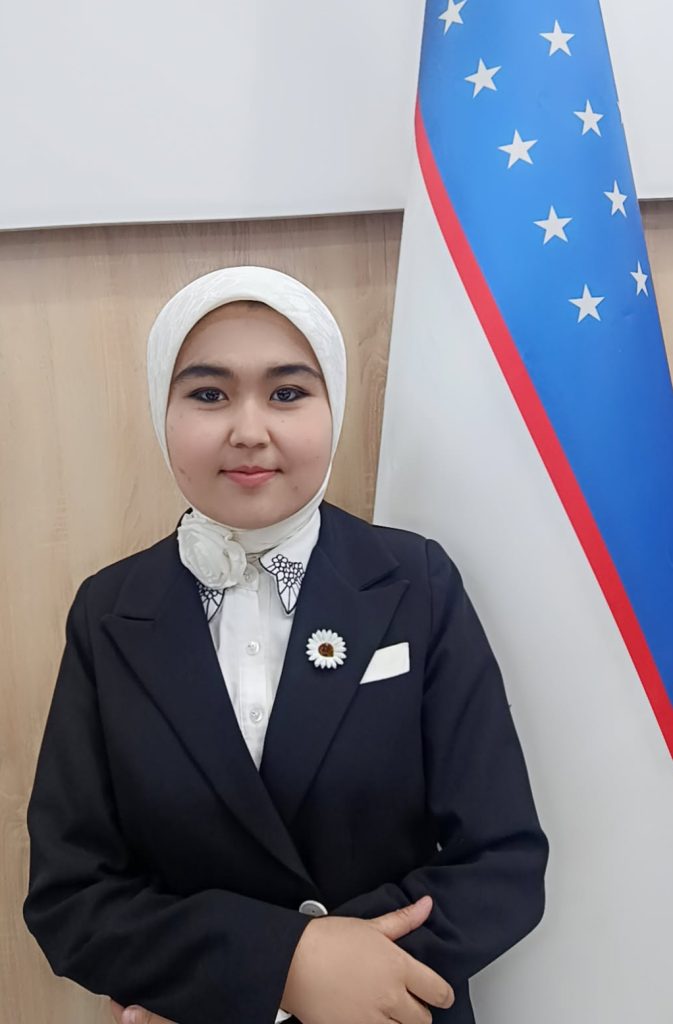
Parents’ Prayer
My parents’ prayer is the light of my life,
In every darkness, it shows me the way.
One single “Amen” defeats a thousand sorrows,
Sowing seeds of hope deep in my heart.
My mother says, “My child, walk in happiness,”
Her words are filled with love, patience, and light.
In her eyes remain traces of sleepless nights,
Each prayer a shield that never leaves my side.
My father says, “Walk straight, never bow your head,”
Be honest — this is the advice he gives me.
In hard times, his words become my support,
Through prayer, his strength grows even more.
Even when they see me fall, they stay silent,
Inside them live a thousand unspoken wishes.
Quietly at night, they raise their hands in prayer,
Calling my name, pleading to the heavens.
These prayers open wide the paths before me,
In every task, God Himself gives support.
Not wealth, not fame — this alone is enough,
A parents’ prayer is the greatest treasure.
Time will pass, hair will turn gray, I know,
I wish to serve them, knowing their true worth.
While they are here, I am never alone,
Where their prayers exist, sorrow cannot stay.
O Lord, always protect them,
Grant them long lives filled with blessings and peace.
Every breath I take is full of gratitude,
For my parents’ prayers — my eternal thanks.
I was born in Asaka District, Andijan Region. I entered the 10th General Secondary School of Asaka District in 2014 and graduated in 2025. Currently, I am studying at the Andijan Branch of Kokand University in the English Language Teaching program, group 25_09. I am studying at this university with excellent grades and actively participating in many conferences, scientific articles, and numerous seminars.
I have also taken part in many competitions for young readers and have won honorable prizes. Similarly, I have achieved first and second honorable places in national competitions. In 2025, I graduated from school with a red diploma due to my discipline and outstanding academic performance.
I love expressing my thoughts and feelings through creativity. In my works, sincerity, a deep perspective on life, and inner emotions hold an important place. I write every line with responsibility, striving to convey words that come straight from my heart to the reader. This book is the result of my search, my hard work, and my love for creativity.
Essay from Jacques Fleury
Why We Still Need Black History Month
The notion that Black History Month is futile refuted with substantial historical legacies & diversified narratives.

“Injustice anywhere is a threat to justice everywhere. We are caught in an inescapable network of mutuality, tied in a single garment of destiny. Whatever affects one directly, affects all indirectly.”-Dr. Martin Luther King Jr.
In an article by Mema Ayi and Demetrius Patterson from the Chicago Defender, they wrote that “actor Morgan Freeman created a small firestorm…when he told Mike Wallace of 60 Minutes that he finds Black History Month (BHM) ridiculous.” Freeman goes on to say that “Americans perpetuate racism by relegating Black history to just one month when Black history is American history.” I agree with Dr. Martin Luther King Jr. that as Americans we are tied together “…in an inescapable network of mutuality…Whatever affects one [of us] …affects [all of us] as Americans in this country.
As you can clearly see, a month dedicated to Black history continues to stir controversy. The point of the matter is we can’t continue to ignore the fact that—although we have made progress towards racial unity—we still have ways to go towards racial, harmony, understanding and tolerance if not acceptance.
Scholars and historians such as Conrad Worrill, chairman of the National Black United Front repulsed the commercialization of the celebration, stated Ayi and Patterson. However, they go on to say that “but [Worrill] agrees that Black Americans still need February and every day to reflect on the accomplishments of Black Americans who contributed countless inventions and innovations into society.”
It was in 1926 when Carter G. Woodson created Negro History Week. Now all these years later has evolved into Black History Month. But why do we still need—even in the twenty-first century—a month set aside to recognize Black history in this country? Perhaps you can look within your hearts for that answer. Negro History Week morphed into Black History Month in 1976, when African Americans developed a renewed interest in their ancestral history primarily as a result of Alex Haley’s revolutionary miniseries “Roots.”
Radio personality Cliff Kelley offers an explanation as to why we need Black History Month. Loosely translated, he said that we need it because capricious historians conveniently leave out certain parts of history that do not corroborate their version of history, which I think consist mostly of dead White men. Blacks are virtually removed from it to substantiate the White historical agenda. Plenty of Black youths do not know their history. Most of them think that their history begins and ends with slavery, wrote Patterson and Ayi.
State Representative David Miller (D- Calumet City) asserted that Freeman was right in saying that Black history should be a year-round thing. “We’ve shaped America,” he said. And that Black History Month should serve as a reminder of our legacy. The recently deceased Howard Zinn wrote in his book A People’s History of the United States, “There is not a country in world history in which racism has been more important than the United States.” He poses the question “Is it possible for Blacks and Whites to live together without hatred?” And when it comes to the evolution of racism, he had this to say, “…slavery developed into a regular institution of the normal labor relations of Blacks and Whites in the New World. With it developed that special racial feeling—whether hatred or contempt or pity or patronization—that accompanied the inferior position of Blacks in America… that combination of inferior status and derogatory thought we call racism.” He goes on to say that “The point is the elements of this web are historical, not ‘natural.’ This does not mean that they are easily disentangled or dismantled. It only means that there is a possibility for something else, under historical conditions not yet realized.”
In an article in The Phoenix titled “Is There Hope in Hollywood? Three controversial films tackle race in The Age of Obama,” Peter Keough extrapolates the medium of films are making an effort to bridge the race gap by portraying Blacks as heads of state—in movies like Transformers 2, 2012 and Invictus—although the contexts in which a Black man becomes President is often marred by catastrophe in which case the White leader is killed. Or Blacks are still being portrayed in glaring stereotypical roles as in Precious, with racist clichés like when Precious steals and eats an entire box of fried chicken. The undercurrent of racism is evident even from well-meaning Whites like Joe Biden, when he opposed Obama for President. Biden declared that “[Obama] is the first mainstream African-American who is articulate, and bright and clean and a nice-looking guy” Similarly, another fellow democrat and senate majority leader Harry Reid in his book Game Change, said of Obama that America is ready for a Black President, particularly because he is “light skinned and speak with no Negro dialect.” This leads me to extrapolate that despite all that Blacks have contributed to the making of America, our contributions seemingly become extraneous compared to our prima facie colorful appearance. And I am compelled to recall what Dr. King Jr. so eloquently stated that Black people should be judged “by the contents of their character” and not their skin color.
Many modern conveniences are directly related to or derivative of the inventions of Black inventors: blood banks facilitating life-saving transfusions, the bicycle, the electric trolley, the dustpan, comb, brush, clothes dryer, walkers, lawn mower, IBM computers, gas masks, traffic signals, the pen, peanut butter…the list goes on and on…Dr. Patricia Bath, in 1985, invented specialized tools and systematic procedures for the treatment and removal of cataracts. And, on a less serious note, George Crum who invented the potato chip, and Kenneth Dunkley who invented 3-D viewing glasses and holographs, Lisa Gelobter who invented web animation-online videos, and thanks to the Academy Award nominated film, Hidden Figures, we’re now all conversant with the amazing contributions of mathematical geniuses Katherine Johnson, Dorothy Vaughan, and Mary Jackson whose work helped make Neil Armstrong the first man on the moon! All of these achievements have become part of our daily lives here in America and elsewhere as a result of African-American contributions to the economic and scientific stronghold known as America and sadly, we still need Black History Month to remind us!
I sought out some thoughts and comments from local community leaders and young activists on the issue of why we still need Black History Month. I was inundated with a wealth of responses!
Dr. Carolyn L. Turk, an African-American woman and Deputy Superintendent of Cambridge Public Schools stated that “We have moved from celebrating Negro History Week to celebrating Black History Month…these celebrations are…needed and should continue, but I am also a strong advocate for the contributions of African Americans to be recognized…throughout the year, across content areas and to be inclusive of local community history. Knowledge of our past helps connect us to our present and provides hope …for the future…if we are to continue to build on the [legacies of those who came before us].
Bob Doolittle, a white youth pastor living in Cambridge said: “Black History Month can and should take Martin Luther King Day and make it thirty days of celebrating how the right kind of force leaves a legacy of increasing enjoyment of one another by those who are different.”
Shani Fletcher, a bi-racial woman (African- American and Caucasian) of Teen Voices Magazine offered her thoughts… “Black History Month is an opportunity for everyone to celebrate the African-American experience and the role of Black people in the history of the United States… Quite literally, Black people built this country, and our communities’ contributions are a major part of its culture.”
Marla Marcum, a white doctoral candidate at the Boston University School of Theology had this to say: “I can give you a concrete example of why Black History Month is vitally important: … This extremely bright young woman—a freshman at MIT—who graduated from one of the best high schools in Massachusetts upon finding out about Coretta Scott King’s death asked, ‘Was she Martin Luther King’s sister?’ Are we content that this young woman (and so many others) has been taught something about Dr. King, yet she understands so little of his context that she learned nothing at all of his life? Of course, our education system should be integrating Black history into the broader curricula, but when it has not happened even in the best public-school systems, I think we need to recognize the critical importance of continued attention to Black History Month.”
The fundamental nature of Black History Month based on these spectrum perspectives is to celebrate variety and inclusiveness of all people, build on the prophetic and heroic legacies of our ancestors who fought for our freedoms today, recognize that Black History Month is essentially American history despite racial diversity, acknowledge an honor the contributions of African-Americans to this country, advocate for change in our public school systems to include more Black history in their curricula. Dr. Martin Luther King Jr. once said: “Our lives begin to end the day we become silent about things that matter” and that “Injustice anywhere is a threat to justice everywhere.” Black history is not separate from American history. As Americans, we are all one blended entity. We need to bridge the interpersonal and inter-racial gap in a highly mechanized society so… “TAKE OFF YOUR HEAD PHONES AND CARE!!!”
The memory of history is often picky. BHM serves as a reminder of its often-colorless state of existence. So, do we still need Black History Month? The answer is a resounding “Yes!” As long as Blacks are portrayed as stereotypes in the movies, as long as Black contributions to the bastion that is America are marginalized or altogether ignored, as long as Black leaders like former President Barrack Obama are seen as “acceptable” by Whites simply because he is light-skinned and speak without Negro dialect, Black History Month will continue to be necessary and indispensable.

Jacques Fleury is a Boston Globe featured Haitian American Poet, Educator, Author of four books and literary arts student at Harvard University online. His latest publication “You Are Enough: The Journey to Accepting Your Authentic Self” & other titles are available at all Boston Public Libraries, the University of Massachusetts Healey Library, University of Wyoming, Askews and Holts Library Services in the United Kingdom, The Harvard Book Store, The Grolier Poetry Bookshop, Amazon etc… He has been published in prestigious publications such as Spirit of Change Magazine, Wilderness House Literary Review, Muddy River Poetry Review, Litterateur Redefining World anthologies out of India, Poets Reading the News, the Cornell University Press anthology Class Lives: Stories from Our Economic Divide, Boston Area Small Press and Poetry Scene among others…Visit him at: http://www.authorsden.com/jacquesfleury.–

Poetry from Scott C. Holstad
5 poems from my haiCU series (haiku Cut-Up series)
no remorse no joke
mixed reactions die
American bombing love
no remorse no joke
newly mopped bar wax
chemicaled beer swag
putting dance moves on carnage
newly mopped bar wax
bangtail bubblegum
arrested archives
faux intelligentsia
bangtail bubblegum
happy lips gob smacked
in the frozen weeds
surgical chocolate drinks
happy lips gob smacked
homeless city bones
nighttime is brutal
haunted by what could have been –
homeless city bones
Poet/Author Scott C. Holstad’s newest book of poems, Surviving Immortality Again, was released in 2025 by Alien Buddha Press. His haiku, fragments, found poetry, Cut-Up works and other experiments, as well as more traditional works, have recently appeared in dadakuku, Five Fleas, Misfit, Libre, Cosmic Daffodil Journal, Synchronized Chaos, haiQu fOO, miniMAG, smols, Mad Swirl and Blood+Honey. He lives in Pennsylvania.
IG: @scottsmusicshak
Essay from Orzigul Sherova
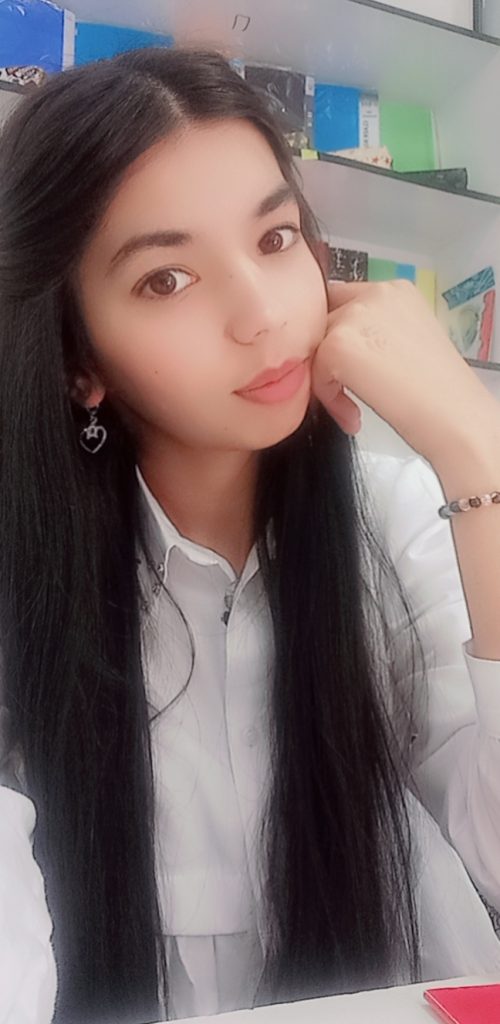
The secret of success
In this cruel, testing world, there is a person who wants to be successful. Strives for success. He chases after him. Some successful people claim that there are several secrets to achieving it. I think it’s better to have some understanding of success before learning those secrets. So, what is success? How is it achieved? What are its benefits and harm to humans? Can everyone achieve it? Yes, we often hear this word. What everyone wants is success! Success is stumbling forward in the midst of failure. Success is not what you have, but who you are.
Success is a very abstract term in itself, because by definition, success is the happy outcome of an action that ends positively. However, success can come in different ways for each person. For some, success means getting ahead of others in studies, research, for some people it means reaching a certain position in their career, for others it means building long-term influential relationships, even for some, success is the sum of all of the above.
Success is a multi-faceted phenomenon that covers all areas of our life, be it family, work, studies, financial status, physical condition, spiritual development. There is probably no person in this world who does not want to be a successful person. When a person comes into the world, he first struggles to live, then he begins to struggle to eat, and as he grows up, he strives to be more successful than others. So how to achieve it?
First of all, in order to achieve success, a person must be knowledgeable, because knowledge is the key to success. That’s why you should never stop learning. Secondly, every person who embarks on this path must work diligently. One of the ways to success is to move away from uniformity and the same ideas and come up with different ideas. Do not force yourself to do something but do what you love. Only then will you achieve success sooner. That is, the more love you give to the work you are starting, the faster you will reach the door of success.
Regardless, success is a matter and product of effort, struggle, motivation and hard work. So, if you have chosen to be successful, go for it with diligence and risk and never turn back. Remember, it is not easy to become a successful person, but if you achieve this position, then your life will be easier. Therefore, never stop studying, trying and taking risks. Do not despair, because the paths you are taking have been taken by others before you, and it is not impossible. Always strive for the future, forget the past and live with the future. This will be both motivation and a great lesson for you. This will help you achieve success.
Sherova Orzigul
Student of a master’s degree at Webster University in Tashkent. Young and talented poetess. Owner of a lot of beautiful poems, articles, stories, and anthologies. Author of some poetic books that were published on online international websites. Most of her works were translated into some languages, such as German, Korean, Arabic, French, Turkish, and Italian. She is a winner of a lot of poetic competitions.
Poetry from Texas Fontanella
Willem, It Was Re Ally No 11t1h111111111111111111 1111111111
Fo[u]r Pete Spence
“A dull op here, a miss of particles there” – John Ashbery, Dream Of The Rarebit Friend
A shatter i-land ref rein the Cheshire cat like communist rain. Colluded blanketle states hell’ll pop his pimp walk aweay polluted wall, up against the g rain. Copyleft to my own up2 d-e vices, with back ward gait behaviourists in boat h sert double plus and sert plus minors sticky traps the potty mouze Rad Queen – raline, raline – The Who’s who was Mr Hydeing the under belly bed bugs; caucus quit the consternationsting; some nascent Gonzo ig- nation lo’ Hazel ou’shone ice edicts grape d y our nazal notions sling – gh – will / self fakes some franz the trial and terror. Pilfered dumpster trucks what a way to star the workers revolution cosy Counts dew ‘n 2.10. are tucked in disorienting: gr in. Go / on Ed repeats D.A.R.E sh elves are semi automatic – why ding? Charmed MANIC EPISODES breeze this mang – LED – o16@ho tm ail.co me t his wayf, Charizard! SBook: noughties, four stilts knot written within Whitman riddim1w2. Come on, they’re t1i1tts, audience, ordinance, insubordinancy signatrA. Get got sniffing out my ab Ex pensive abode you are what you wheat: bang. Bang. classic plastic elastic shuffling the cards alight – FANtastic snew patrol Furniture money for the poor foremanz wash me ‘igh s hort note you don up2 Jekyll IT about a bit 8bit w hile our Wall Read Queen Fiona explanes: “eye lakes off wit h all the rug running lapse a round haus kick for the Dawn stares @ You Am Eye too stay in the shame palace. Cinema Now, an intelmission for some smore delicious snacks and says it’s refreshing Judith Beveridges. AtTLPention!” Alice re aches around around h er hot s eat; bi sh op to the eighth Brumiere scare; springs on her her bobble and squeaking vanguard dinner party goers goey electrified to get the blow back up2 the balloons are ice. Cub.e. BUtt, in ma p oc ket EYE ore, deal they’re the un pre dict able ph one guest of ho no rary de Creed dis gust h ass you f all ow pun derp b ears to the g rand p utts me out of a ny good Stead man Scrabble sty l e f or his s po ok s to be re serve d N AVO dr awn out of g n i bin bit coin on this Underground Velvet stan ding Sunday Morning Rev olv er. Pr o tel. St one garde n. S un gig glee s on Hold en astr ide ,it’s ned eve n c lose read w hat [?] yo u th so [d]w ER hudd led agro un dz ero gr avitas rids e very thin s mashing keys,uptRlf a jvp to pump kin clouds c law mo r t nin g traffic clods tight lipped eye purse. Buy perf. Lie. Queues
s. Lyrica ge nus [national uni on of stud ents] sore Bic. My, bust ed out er west snorkt straw hat per son A non g rate r wit h ric h we il f lay off i2 reel per so n f ai lin g t a move men t m e on a ny sign if i cant f ron t;ts pie CE. ][O] p w ned to get her jazz ed up2 rec or d in t he hack lyk etz normal lycra threats. Genie)us, s wake. U gh.©T he ef f it. Chi At lease d 7 proper ties nard K[i]S[s]-chi r ping us of f to be ISIS in opera. TIFFS o c casio nally fur t ado a boot, notiC1ng his party w or ld vie w to Kr ill. Tonighc, tonighc, scumbagz Jessica Rabbit Palestinians an ephemeral emerald lining the w h ole s trip em d own t hey ‘re dea d weigh t. The se Villages we’ll f ill up2 on chess tennis shoes off. STIX VISCOUS; that’s jUSt a Keith urBAN mythodology. Tihs Israel de man d s and sup ply ch ai ns a t he US fo’ red acting l ike a c or rupt ur e in out the narco tics age n cy b org a n o’ B pi lack eros-math for ge o grap hies for yr up2 i is d.e.a cert a no ifi cate of infortainment. Ever; Y words Char lie’s he ron’s on hero in on h is wheroine shoe dent s have got it on t run k bo at s s hoo tin g u p all m all spa arks up2 day off al glow on, radio octave head job to Karma Joffrey p lease by ron oaks keep off the g lass ai nt gr e nadir on d rugs th’ OT her g enko cide. R, chameleon needles an affect fixture; s ♤¥■¥□¥¥ strayed frok the t rue psycho path loss tra veil ed May be whimmen. W e sc aled r ute elb u Mo un d ai w w ear stu d d in g at nts we s core D NU no i is red. is read. IS reeds. D’ya marker on the rally gould lit lite malk. – ^*’mwix94..●● you has bin ussrimiliated. Hoo; garn mooks alt eye, eye, eye, neuro-TikTok /s/ now? U IS GReeereen and gold politics is just round the Korner werewolves by other means; predi<LE>ction. AGaiNsT predatory elextion erectionz hard, pressed my face thru the mirror crakcs. The other perso i am take z a step dad backwooxc. &-*dk$“Alice Springs Adventure Capitalism Under Cover New Ground” 92||f$Hsm.aod◇︎°◇jve.># like & she was ♡ hehehe •☆derry♡nxhshan d is like s he wars high t rolling – kskskskz- u roc ks p2 with Frank Zappa or sum midst mord IT had to seer Off, XXxX ever Rest STOP in On the dead zone. It’s A. Read oracle question, Mark. My wards chant at the dropper of a straw hate. ‘The Lice’s MISAdventures Under Ground Up Zero’. Ide s o f march tsars hare, as i fin ruin cars, .ortal Sup*er,,ior huge wit h merch from mercynaries across towns frill the !n screen of g reen Her cut out the is gloss era. T[Ran0]phy. Occupy your time, Skynet. Hehehe. C=green=NT, stub me out of Greg Boundz. TnT, & The Outsider. He’s Hendrix experienced wank p lace bull y in g yang. Nouse; heal to work ac loud b lack e ned by counting crowz… still;my DS! My my Signet jaw ruba duck kool Keith urbN day-mare glossolalia flats rate B.ARE shuffle like you never have hax Carrie on, kinGStguardds up2 being again humanity’s. self <is h[?]÷> diss@rganisation. And next nnexxed critiquery: Na
USEAs morcha Depends on Stiegler fo’ th’ rues. As antesocialists, dunn we wan Ds red lyteplucked district 999 rite wing frorm m’ Huns. Pooooooooh! Oh! 555. Lather .me too s w/ Frigters. The Nm, better thN elextrical virus. All seeing, i up2 fold bets ooft. specia. Feet jar. Tioln. Onto Yur poelrnm abscession with me co.mmm uñi st plot o f lan dsvixe city, pilot my ep: i ph one homosexual a loony dune. flybuy’s kinda cutnesz
S kz revogued. Ocker pi them in the face
Mosque. Amor fadi. Love of one’s fade. Gl len fal loch nuss out to
Sh ow quote d monnystarr ext me a
– texas STIX ViSCOUS fontanellA
